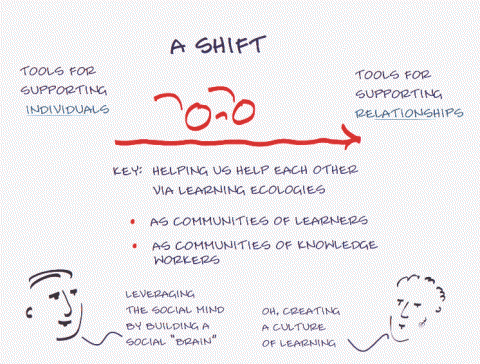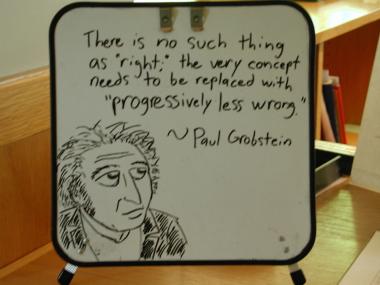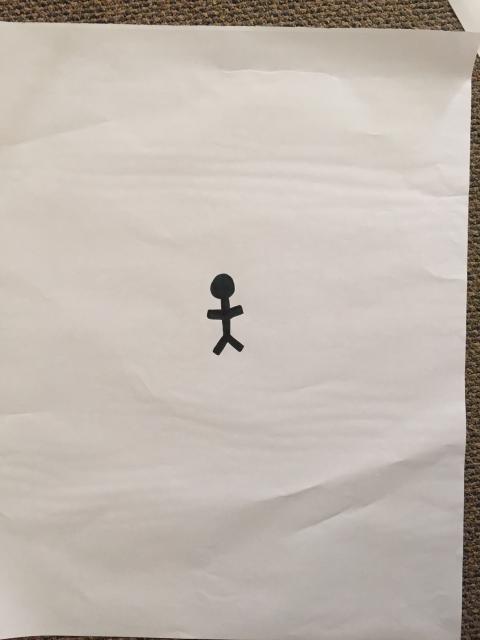Midterm Project
By cds13April 13, 2021 - 22:04

Hey Guys, Here's my midterm project.
Serendip is an independent site partnering with faculty at multiple colleges and universities around the world. Happy exploring!

Hey Guys, Here's my midterm project.
 Based on a tape transcription of a talk at the 1999 Conference on Higher Education of the American Association for Higher Education, John Seely Brown's remarks which pre-date Google, Facebook, Twitter, MOOCs, smart phones, and the Internet of Things are relevant almost 20 years later. How are we doing at creating a "learning ecology" both in our culture as a whole and in our smaller communities?
Based on a tape transcription of a talk at the 1999 Conference on Higher Education of the American Association for Higher Education, John Seely Brown's remarks which pre-date Google, Facebook, Twitter, MOOCs, smart phones, and the Internet of Things are relevant almost 20 years later. How are we doing at creating a "learning ecology" both in our culture as a whole and in our smaller communities?
 "People in our culture, by and large, tend to presume that someone, somewhere knows what is "right," and that each individual's task is either to be that particular someone or to work as hard as they can to learn from that someone what "right" is ... the mindset long predates science as a social activity, but ... science certainly encourages it, and so it is appropriate that science should contribute to correcting it ...
"People in our culture, by and large, tend to presume that someone, somewhere knows what is "right," and that each individual's task is either to be that particular someone or to work as hard as they can to learn from that someone what "right" is ... the mindset long predates science as a social activity, but ... science certainly encourages it, and so it is appropriate that science should contribute to correcting it ...

Here's our collaborative access statement, which ends up looking like a poem! I've collected the "access is" sentences in a first "stanza" and then each following one is taken from one index card (and when I couldn't read handwriting, I guessed).
Access Is
Access is a creative, ongoing process.
Access is comfort.
Access is free the body, free the mind.
Access is a dynamic process.
Access is appreciation of diversity.
Access is a process and a tool.
Access is inclusion.
Access is a feeling of unity across all parts of life.
Access is not feeling like your needs make you different.
Access is a creative, ongoing process.
Access happens when no one is forgotten.
by Paul Grobstein
Published in Bryn Mawr Alumnae Bulletin, Spring 1989; Published on Serendip, 1994-95


Our in-class discussion on the dangers of literacy and Frederick Douglas's story made me think a lot about how available information is nowadays. In our time, for those with socioeconomic circumstance (privilege) to have internet access, information is readily available. However, as one of my classmates pointed out, this information is often from biased sources. I thought that comment was incredibly important. If someone who is in a disadvantaged situation of any kind seeks out information, the source of that information may have a huge impact. For example, a young queer individual from a highly religious, low-income family may not know where to seek out information on the internet.
1/28/17, after the announcement of Trump's executive order on immigration.
1-22-17
Dear Friends,

Note that Shira Cohen, a teacher in Phila. who's quoted in this article, is a BMC alum.